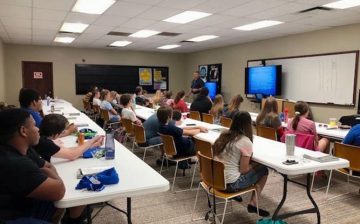Can You Get Your License at 18 Before the 9-Month Permit Period Ends?
If you’re about to turn 18 but still have a few months left on your 9-month driving permit, you might be wondering if you can go ahead and get your full driver’s license. This situation is a common query among young drivers who are eager to gain more independence on the road. In this article, we’ll delve into the question of whether you can obtain your license at 18 before the 9-month permit period is up.
Understanding Graduated Licensing Programs
To address this question, it’s essential to first understand the concept of graduated licensing programs. These programs are designed to gradually introduce new drivers to the complexities of the road, ensuring their safety as well as the safety of others. Most states have some form of graduated licensing system in place, and it usually involves several stages, including a learner’s permit stage and an intermediate stage.
The Learner’s Permit Stage
The learner’s permit stage is the initial phase of obtaining a Online course drivers ed. During this period, new drivers are required to practice driving under the supervision of a licensed adult. This phase typically lasts for a predetermined period, often around 9 months, but the duration can vary by state.
Reaching the Age of 18
Now, back to the question at hand: Can you get your license at 18 before the 9-month permit period ends? The answer largely depends on the laws and regulations of your specific state. In many states, once you turn 18, you might be eligible to upgrade your learner’s permit to a full driver’s license, even if the 9-month period hasn’t yet elapsed.
The 18-Year-Old Advantage
Turning 18 brings about a change in your legal status, and this can work in your favor when it comes to driving privileges. In states that allow it, once you hit 18 years of age, you might have the option to skip the intermediate phase and move directly to obtaining a full license. This is because the intent of the graduated licensing program is to gradually introduce young drivers to the road, and by 18, you might have already demonstrated enough responsibility and experience to be granted a full license.
Checking Your State’s Regulations
However, it’s crucial to recognize that driving laws vary from state to state. Some states might require you to complete the entire 9-month permit period, regardless of your age. Others might have specific conditions or requirements that need to be met before you can upgrade your license. Therefore, it’s highly recommended to check with your state’s Department of Motor Vehicles (DMV) or equivalent agency to get accurate and up-to-date information.
Navigating the Process
When you’re close to turning 18, reach out to your local DMV to understand the exact steps you need to take to transition from a learner’s permit to a full driver’s license. They can guide you through the process, informing you about any required documentation, fees, and tests you might need to complete.
Conclusion
In conclusion, if you’re turning 18 before your 9-month driving permit is up, you might have the opportunity to obtain your full driver’s license in some states. The transition from a learner’s permit to a license is influenced by both your age and the specific regulations of your state. To avoid confusion or disappointment, make sure to research your state’s Driving education course online laws and consult your local DMV for accurate guidance tailored to your situation.
FAQs
Q1: Can I get my license at 18 in all states?
A1: No, the rules regarding obtaining a license at 18 vary from state to state. Check with your local DMV for specific information.
Q2: What if I’ve completed all the necessary driving hours before I turn 18?
A2: Even if you’ve fulfilled the required hours, some states might still enforce the full 9-month permit period. Confirm with your DMV.
Q3: How can I find my state’s specific driving laws?
A3: You can visit your state’s DMV website or contact them directly to get accurate and current information.
Q4: Can I drive out of state with my learner’s permit?
A4: It depends on the state you’re driving in. Some states might honor your permit, while others might not. Research the laws of the state you plan to visit.
Q5: What other restrictions might apply to new drivers?
A5: Aside from the permit period, new drivers often have restrictions on nighttime driving, the number of passengers allowed, and more. Familiarize yourself with these restrictions to drive safely and legally.


